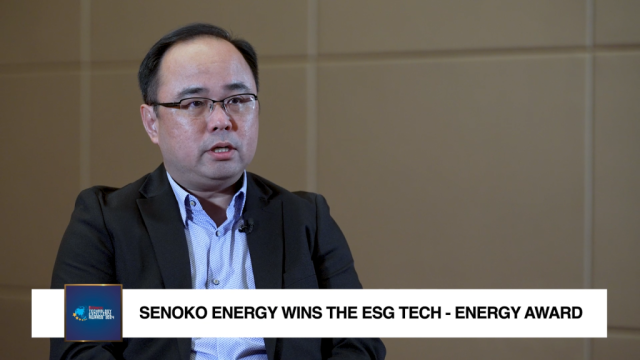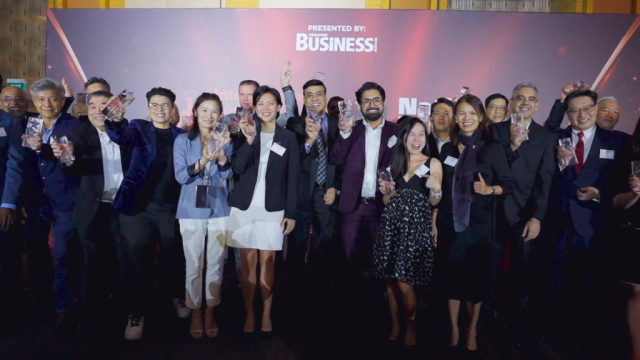10 leadership lessons from the world’s top visionaries
By Ronald LeeWhat makes a great leader? Here are 10 powerful philosophies from the most admired business leaders in the history of the world.
What makes a great leader? It’s not the title bestowed upon you, nor the millions in your bank. And leadership is certainly not defined by one’s popularity either. Followers define leadership.
As a business leader, your job is to galvanise your followers into performing at their peak for the greater good of the company. That is why most of the leadership lessons outlined below have one common theme: people.
Read on to discover the essential qualities inherent in the greatest leaders of our time – those who have made an indelible mark in history and whose legacies live on.
Embrace change, don’t fear it
If there were a hall of fame depicting the world’s best business leaders, Jack Welch would be the first name at the top. The former CEO of General Electric who held the post for 20 years not only embraced ‘change’; he loved it.
Although the vision may remain the same, Welch always believed in changing the tools and methods to achieve the company’s goals.
The business environment is changing at such a lightning pace today. New competitors and products are hitting the market at an unprecedented speed and companies that do not evolve to keep up with the changing times are left eating the dust of their rivals. Just think of how Nokia was the market leader in mobile phones just a few short years ago but now, almost every other person in civilised society is toting an Apple iPhone.
Jeff Bezos, Chairman and CEO of Amazon.com, is another champion of change. “What’s dangerous is not to evolve,” he has said. Consider how Amazon’s Kindle has become the world’s best-selling e-book reader – a threat to not just paperbacks and hard cover titles but to bookstores the world over.
Pay for performance
Whether in sports, business or even war, great leaders have the ability to get others to perform at high levels. Jack Welch was also known to be a strong advocate for rewarding top performers handsomely.
While at General Electric (GE), he set measurable targets for his employees, invested substantially to train them, and gave them honest appraisals. The top 20 per cent of high performers then received pay increases of up to 300 per cent more than the “good” performers.
To be the best in your industry, you’ve got to give your employees a strong incentive in order to get them to perform at their highest levels – consistently.
At other end of the spectrum, Welch believed that those that do not carry their weight should be culled from the workforce. "Remove the bottom 10 per cent of your performers, annually,” is his controversial advice and practice. It’s not being harsh or heartless. Think about it: You’re not doing them any favours by keeping them in your employ because the likely reason they’re not performing is due to a wrong fit.
So it may be best to release them and encourage them to pursue other paths in which they may be better suited to succeed.
Listen
“Lead by listening – to be a good leader you have to be a great listener,” Sir Richard Branson, Founder and Chairman of Virgin Group, recently tweeted. A personification of the participative leadership style, he believes in listening to his employees’ views and encouraging some degree of debate in order to draw out the best ideas from his team.
He makes decisions based on consensus – by gathering the views of other members in his team, which is a departure from typically autocratic CEOs. So talk to your people, take the time to get to know them and help each one realise their potential.
You would certainly do well to take Branson’s advice – it’s helped him amass a billion-dollar fortune from an empire comprising more than 400 companies.
Love what you do
As the head honcho of any for profit organisation, you definitely need to keep a hawk-eyed view on the bottom line. But the best brains in business like Welch and Branson will tell you that the best leaders are ruled by passion. Welch didn’t focus on the numbers but the vision – he brought passion to his purpose and executed his plans with energy and exuberance.
Branson is famous for advocating that the key to success is in loving what you do. To him, business has to be fun so that work and play are not mutually exclusive concepts.
“If a businessperson sets out to make a real difference to other people’s lives, and achieves that, he or she will be able to pay the bills and have a successful business to boot,” goes a Branson maxim.
Hire the best
As Ray Kroc, founder of the McDonald’s empire, once said: “You're only as good as the people you hire.” Really great leaders are not threatened by the prospect of hiring people who are smarter than them. In fact, they know it’s the only way for any organisation to become truly great, especially if you want to grow your business to a global level. Kroc also believed in the power of team: “None of us is as good as all of us,” was his motto.
Don’t accept ‘no’
When Steve Jobs, the late co-founder of Apple, was developing the very first iPhone, he was dissatisfied with the use of plastic because it scratched easily. Instead, he decided that the iPhone’s face had to be made of glass.
He met with the CEO of Corning, who informed him of a type of glass they had developed called “Gorilla glass”. Jobs said he wanted a major shipment of the glass in six months but the stunned CEO told him it was not possible due to engineering challenges.
Jobs didn’t accept “no” for an answer and the CEO found a way to deliver the glass in less than six months by converting the entire production at one of its factories from making LCD displays to manufacturing Gorilla glass instead – full-time, non-stop until the order was complete.
Always inspire others
A hallmark of a great leader is the ability to inspire others. Howard Schultz, Chairman and CEO of Starbucks, knows this better than most.
“One of the fundamental aspects of leadership, I realised more and more, is the ability to instill confidence in others when you yourself are feeling insecure,” Schultz says in the book ‘Pour Your Heart Into It: How Starbucks Built a Company One Cup at a Time’.
Schultz has built Starbucks on this keystone: “soul”. He leads with compassion, creates a great corporate culture pivoted on a social conscience, and inspires employees to deliver their very best performance.
Don’t be afraid to make enemies
Media mogul Rupert Murdoch has been quoted saying: “When you're a catalyst for change, you make enemies – and I'm proud of the ones I've got.” The Chairman and CEO of News Corporation may have been embroiled in a phone hacking scandal no thanks to one of his British newspapers but he has built a media empire nonetheless – the world's second-largest media conglomerate in fact.
We’re certainly not advocating going to such extremes but the lesson here is that great leaders are not afraid of being disliked; they recognise that it’s part and parcel of the game. Your external haters will be your competitors.
Why, you don’t even need to be top dog to be unpopular – just ask anyone who has been promoted to a leadership position. So to be a good leader, you’ve got to be okay with not being liked because your job may require you to make tough decisions or implement policies that are not welcome by everyone.
Stay true to your vision
Many entrepreneurs start a business to sell it for a profit once it has achieved a certain degree of success. But not Mark Zuckerberg. Well, not initially at least. In 2006, Yahoo tried to takeover Facebook with a US$1 billion offer but the then 22-year-old CEO rejected it outright. With the memory of the dot.com bubble burst of the early 2000s still haunting investors, many felt that Zuckerberg had made a big mistake.
But the fresh-faced CEO was clear in his vision, which was “to build something for the long-term,” he had said. On 18 May 2012, Facebook’s IPO became the biggest in Internet history with a market capitalisation of over US$100 billion. The price of its shares has fallen since, but the IPO made Zuckerberg a billionaire several times over.
Never give up
Anne Mulcahy, former CEO of Xerox, is credited for saving the company from the brink of bankruptcy. Xerox had been mired in debt to the tune of US$18 billion due to an unsustainable business model and having being overtaken by competitors that were more innovative, agile and aggressive.
But Mulcahy managed to turn the company around and get it profitable again because of her mantra of never giving up.
“There were many near-death moments when we weren’t sure the company could get through the crisis. In those days we would do anything – and I mean anything – to avoid bankruptcy,” she once said, recalling her 25-year career at Xerox.
Declaring bankruptcy would have been an easier way out but Mulcahy resisted the temptation despite all her advisers urging her to do so. Instead, she chose to embark on a much tougher goal – “restoring Xerox to a great company once again”. That, she certainly did, thanks to her persevering spirit.
As you can see, a great leader is both a dreamer and a realist. After all, as Napoleon Bonaparte once said: “A leader is a dealer in hope."

























 Advertise
Advertise










